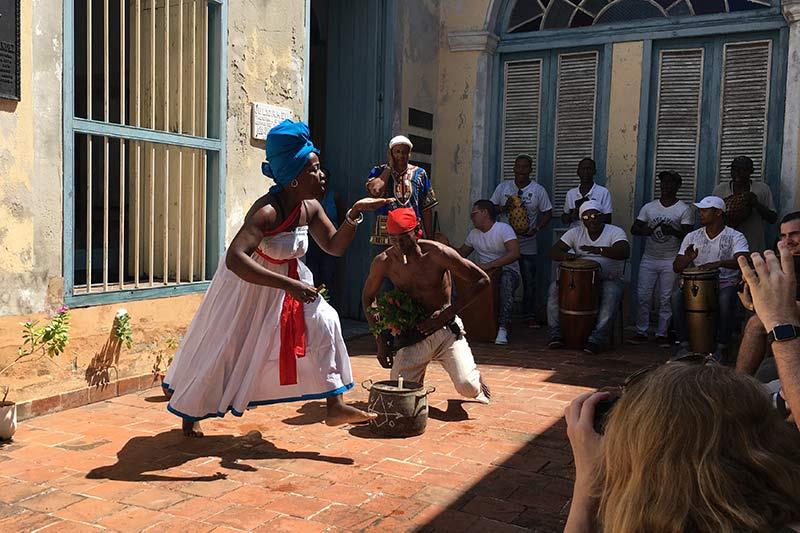Educators explore Cuban culture via Stone Center institute
Ten K-12 teachers from across the United States recently embarked on a unique experience – learning to teach about Cuba while living there during a two-week program for educators.
The teachers were participants in Tulane University’s Stone Center for Latin American Studies’ annual Summer Teacher Institute held in Havana, Cuba, in June.
Carolina Caballero, associate director of the Institute for Cuban and Caribbean Studies at Tulane, led the group on visits to political and cultural sites throughout Havana including local schools, artist workshops and museums.
The itinerary, designed with educators in mind, highlighted themes such as the Cuban Literacy Campaign. Cynthia Garza, a New Orleans middle school teacher who participated in last year’s institute, said the literacy campaign was a useful tool for engaging her students.
“As an educator, trying to figure out how to approach Cuba can be a little overwhelming,” said Garza, whose cohort developed a podcast surrounding their experience learning about the Cuban Literacy Campaign. (Listen here.)
Besides Havana, there were group excursions to the historic cities of Trinidad, the Che Guevara monument in Santa Clara, Playa Girón, the site of the Bay of Pigs invasion and Matanzas. The program also included a series of talks on the current Cuban political and economic landscape, education, the history of sugarcane production, Afro-Cuban culture, and race and racism.
The annual professional development institute for teachers has brought U.S. educators to Cuba since 2015 with a goal to improve and enhance the teaching of Cuba at the K-12 level. A catalog of free teaching resources is available free of cost from the Stone Center on its Teaching Cuba page.

